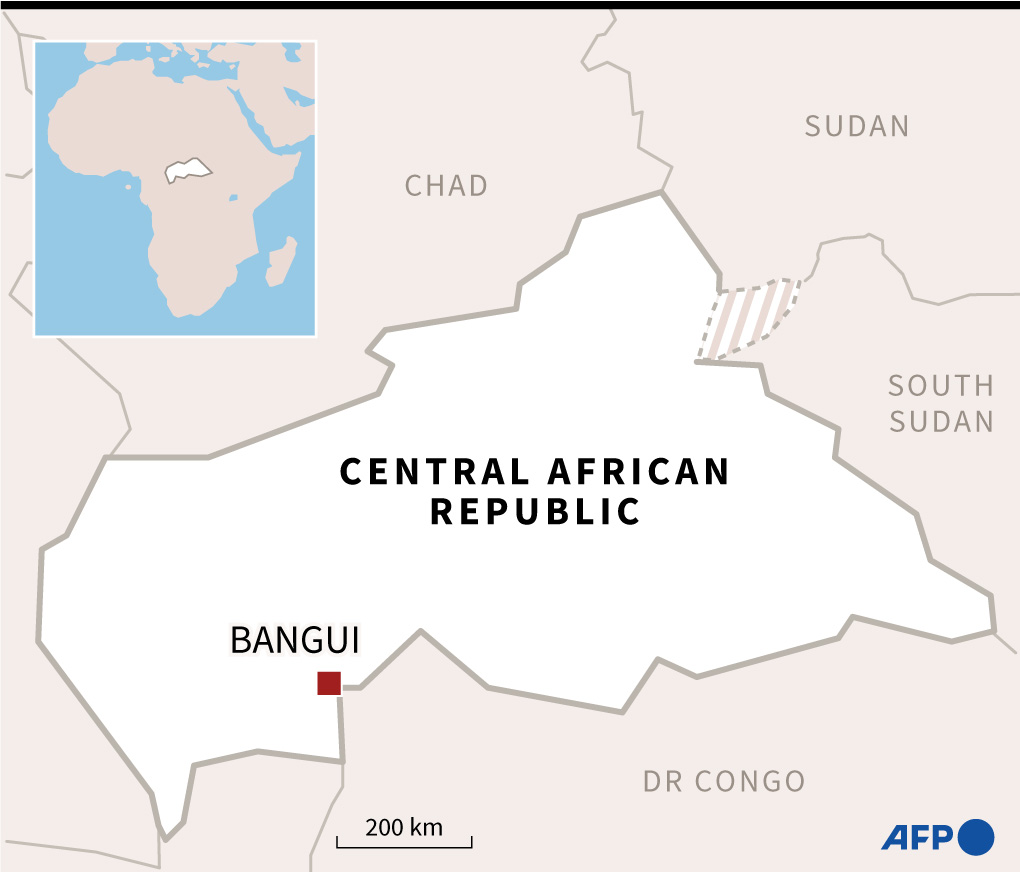A Central African Republic court Tuesday handed 10 years forced labour to a consultant for an American NGO accused of seeking an armed group’s help in capturing the notorious Ugandan warlord Joseph Kony.Joseph Martin Figueira, a Belgian-Portuguese dual-citizen working for the Family Health International 360 group, was convicted of undermining state security in the country, which is still plagued by armed groups.He was arrested in May 2024 and had initially faced six charges, including conspiracy and espionage, over his contacts with fighters in the restive eastern region of Haut-Mbomou, bordering the Democratic Republic of Congo and South Sudan. The public prosecutor accused him of “giving orders” to an influential militia to help track down Kony, the fugitive leader of the Lord’s Resistance Army who has operated in the Central African Republic.The court ordered Figueira to pay damages of 50 million CFA francs (around $88,000) to the Central African state to compensate for the harm suffered due to the financial and political support provided to armed groups, a lawyer said.”I was not expecting that sort of verdict. I will appeal to the Court of Cassation. We have a three-day deadline to do so,” Figueira told AFP after the verdict was handed down. His lawyer, Nicolas Tiangaye, insisted that “this trial was not fair”, claiming that his client had been “tortured”.- Kony ICC case -During the hearing, prosecutor Jean Vidal Damas presented more than an hour’s worth of conversations between Figueira and top brass from an armed group, the powerful Union for Peace in the Central African Republic (UPC), to the court as evidence.In the discussions, Figueira can be heard speaking with UPC leader Ali Darassa, one of Darassa’s political advisers and a representative for the International Criminal Court, Nicolas Herrera.The ICC is seeking Kony for 39 counts of war crimes and crimes against humanity, including murder, rape, torture, enslavement and sexual slavery, allegedly committed between July 2002 and December 2005 in northern Uganda.”The mere act of giving orders to an unconventional armed group can be equated to complicity, to criminal association,” Damas argued.Kony’s September hearing at the court in The Hague was the first ever to be held without the suspect present. Kony has not been seen in public since 2006.Despite a 2019 peace deal between the Central African Republic’s government and 14 rebel groups, several armed factions continue to fight and claim control over parts of the country.The Central African government inked a peace agreement with the UPC in April, as well as with the influential Return, Reclamation and Rehabilitation (3R) militia. Both armed groups began handing in their weapons in August. Since independence from France in 1960, the Central African Republic has seen a succession of conflicts, coups and authoritarian rulers.In recent years the intervention of a United Nations peacekeeping mission, Rwandan troops and Russian mercenaries from the notorious Wagner paramilitary group has helped to improve the security situation. Yet anti-government fighters are still at large on the country’s main highways, as well as in the east near the borders with war-torn Sudan and South Sudan.
